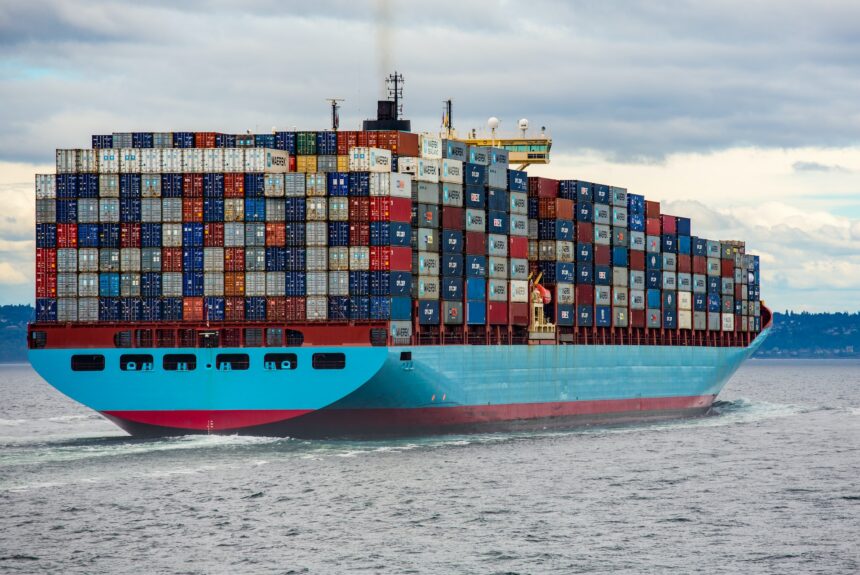In a win for consumers, India recently announced that it would repeal its cabotage law which restricts foreign vessels from transporting goods between the country’s domestic ports. This reform will lead to lower costs for India’s consumers and lead to better air quality for India’s citizens as more goods will be transported through more emissions-friendly means (shipping). The U.S. should learn from India’s decision and repeal its own restrictive shipping law, the Jones Act.
>>>READ: It’s Time to Repeal the Jones Act
The Merchant Marine Act of 1920, also known as the Jones Act, requires any goods being shipped between two U.S. ports to be carried on an American vessel built in the U.S. that is manned by a majority-American crew. A classic example of cronyism, the Jones Act was enacted to protect domestic shipbuilders from foreign competition. Heralded as the most restrictive cabotage law in the world, the Jones Act hurts U.S. competitiveness in the modern global economy, makes domestic goods and energy more expensive for Americans, and is counterproductive to America’s national security interests.
While America has ascended as the top energy producer and exporter in the world, the Jones Act has forced residents of the Northeast and our territories to rely on foreign oil and gas.
Analysts estimate that it costs three times more to ship oil from Texas refineries to the East Coast than it does to ship oil from Canada. Shifting oil supply has significant economic implications, with one study finding that Jones Act requirements cost the U.S. petroleum industry $298 million a year, after adjusting for inflation.
Liquified natural gas faces similar Jones Act-related challenges. In regions such as New England, where pipelines are not readily available, it is cheaper to import natural gas from Norway or Trinidad and Tobago than Texas. Likewise, Puerto Rico is unable to import any liquified natural gas from the U.S. mainland because there are no liquefied gas carriers that meet Jones Act requirements.
These restrictions add undue costs not only to consumers but to the environment as well. As numerous studies have shown, American oil and gas is produced more cleanly than energy from overseas. American oil drilled in the Gulf of Mexico, for instance, has a carbon footprint that is 23 percent lower than the global average. By restricting American energy to domestic consumers, the Jones Act empowers dirtier foreign oil and gas production. The Jones Act also shifts transportation to less fuel-efficient methods like long-haul trucking and rail.
Outside of increasing energy costs, the Merchant Marine Act hinders our ability to quickly respond to natural disasters. When Hurricane Fiona devastated Puerto Rico in 2022 a BP tanker carrying 300,000 barrels of diesel fuel to power hospitals and emergency response centers was not legally allowed to unload until President Biden granted a temporary waiver to the ship.
>>>READ: Fixing Flood Insurance
By limiting competition the Jones Act has hurt the one industry that it was designed to protect: American shipping. The average age of commercial U.S. vessels is now nearly three times that of the rest of the world, and in the past four years, 25 of America’s largest 110 shipyards have closed. As of 2010, Jones Act-compliant ships were 2.7 times more expensive to operate than their foreign competitors. This impacts not only our economy but national security as well. A dwindling shipping industry and closing shipyards hinder America’s ability to modernize our naval fleet, weakening our military and delaying our ability to quickly respond to challenges abroad.
Recognizing the many challenges that the Jones Act presents, policymakers would be wise to repeal the law altogether. Doing so would drive down costs for consumers and incentivize the U.S. shipping industry to innovate in order to remain competitive. Importantly, this would not put America at an economic disadvantage, as several nations have repealed their cabotage laws in recent years. As Scott Gabnow writes for the Cato Institute:
“In 2021 China relaxed its protectionist maritime measures on a trial basis to allow the transshipment of international cargo via Chinese ports on foreign‐flagged ships. And last year Brazil eased its cabotage laws to bolster competition and the use of domestic shipping. Canada, meanwhile, extended limited cabotage privileges to European Union vessels as part of a trade agreement with the EU that took effect in 2017.”
Short of repealing the law, Congress should strike the Jones Act’s build-in-America requirement. Allowing U.S. ships to be constructed on foreign soil by allied and friendly nations would lower costs and lead to faster construction for critical vessels. Lower construction costs could also jumpstart the domestic industry by attracting investors who might see it as a good financial opportunity, which would benefit the industry in the long term.
India’s plan to repeal its version of the Jones Act should inspire American policymakers to do the same. For more than a century, the Jones Act has inflated energy costs, increased emissions, and undermined national security. Reducing barriers to trade and eliminating protectionism are wins for the planet and its people.
The views and opinions expressed are those of the author’s and do not necessarily reflect the official policy or position of C3.
